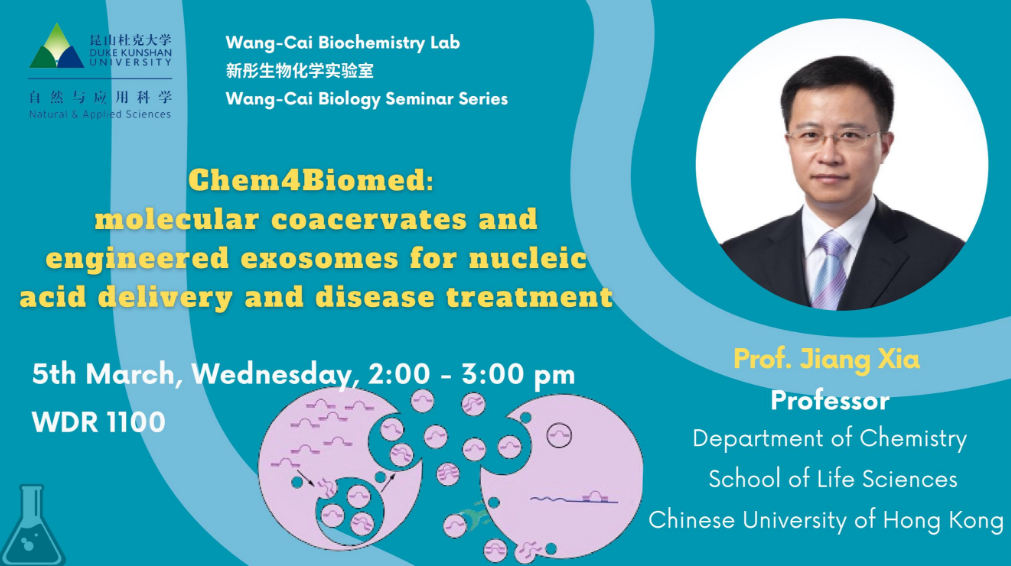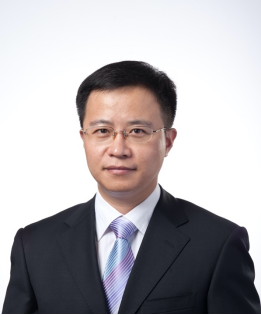Date&time
Time:5th March Wednesday, 2:00-3:00pm, BJT
Location: WDR 1100

Speaker:
Prof. Jiang Xia

Professor in the Department of Chemistry at the Chinese University of Hong Kong
Abstract:
Advancements in chemistry propel the development of new disease treatments. For example, bioorthogonal reactions have a far-reaching influence on biomedical research, leading to new therapies, such as antibody-drug conjugates. Our lab is dedicated to developing site-selective protein reactions that are precise to a single amino acid rather than one type of amino acid. Recently, we achieved site-selective acetylation of Lys 248 and preferential modification of Tyr 296 of commercial antibodies. These reactions enable the development of antibody conjugates for cancer immunotherapies.
Second, delivering biotherapeutics across the cell membrane is challenging. We discovered that molecules forming phase-separated coacervates can convoy biological molecules, such as siRNA, mRNA, peptides, and proteins, including antibodies, into the cytoplasm of cells. These technologies ignited a potential cancer therapy called coacervate-induced targeted protein degradation.
We also developed new disease treatments that have high translational values. Our work on engineering extracellular vesicles (including exosomes) to treat osteoarthritis and osteoporosis received private investment and led to a start-up company, EVLiXiR Inc. We also closely collaborate with Trautec Inc. to develop recombinant collagen products based on our chemistry knowledge of protein, which has received great success in the skin repair market.
Taken together, our lab strives to manifest the central role of chemistry in advancement of biomedicine beyond the traditional realm of drug discovery and develop new therapeutics for disease treatments.
Bio:
Jiang Xia is a professor in the Department of Chemistry and a professor by courtesy in the School of Life Sciences at the Chinese University of Hong Kong (CUHK). He received Bachelor of Science (1995-1999) and Master of Science degrees (1999-2002) from Nanjing University, China, and a Ph.D. degree from Stanford University, USA (2002-2006). He received postdoctoral training at Caltech and concomitantly held the associate position at Howard Hughes Medical Institute, USA, from 2007 to 2008. He started his independent career as an Assistant Professor (2009-2014), was promoted to tenured Associate Professor (2015-2021), and is now a Professor at CUHK. His research interests lie at the interface of chemical biology, synthetic biology, and biomaterials, focusing on the application of chemistry in biomedicine (Chem4BioMed) and in synthetic biology (Chem4SynBio). His lab currently focuses on the following projects: 1. Site-specific antibody reactions and their applications in immunotherapy; 2. Phase separation and molecular coacervation for biosynthesis and intracellular delivery; 3. Exosome-targeted drug delivery in osteoarthritis and other diseases; 4. Recombinant collagen for tissue regeneration. He was elected a Fellow of the Royal Society of Chemistry in 2021. He is a co-founder, chief scientist, or chief consultant of several companies.
